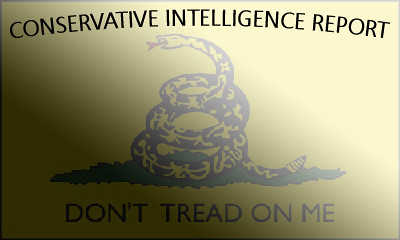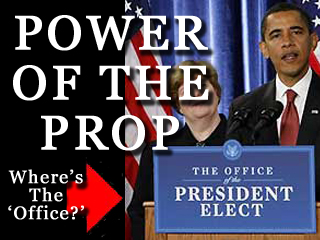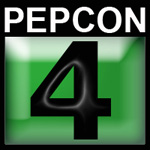20081128
20081127
Happy Thanksgiving!
American Forces Press Service
WASHINGTON, Nov. 26, 2008 – U.S. troops serving in the Middle East will dine on a traditional Thanksgiving meal tomorrow, thanks to the efforts of Defense Supply Center Philadelphia employees.
The supply center has sent thousands of pounds of food – including more than 120,000 pounds of whole turkeys and more than 170,000 pies -- to troops in Iraq, Afghanistan, Bahrain, Dubai and Djibouti.
The center has sent the following items overseas for tomorrow’s meal:
-- Whole turkey: 121,108 pounds, worth $323,228.60;
-- Turkey breast meat: 109,780 pounds, worth $437,991.49;
-- Turkey thigh meat: 145,780 pounds, worth $361,852.66;
-- Ham: 95,826 pounds, worth $263,199.92;
-- Beef: 178,466 pounds, worth $1,139,970.37;
-- Shrimp: 131,359 pounds, worth $1,712,960.70;
-- Stuffing mix: 16,874 containers, worth $149,025.40;
-- Potatoes: 14,308 containers, worth $64,181.47;
-- Sweet potatoes, 56,104 cans, worth $137,584.15;
-- Cranberry sauce, 10,994 cans, worth $74,683.30;
-- Corn: 32,535 pounds, worth $155,874.42; and
-- Assorted pies: 179,810 individual pies, worth $1,451,491.36.
The center, part of the Defense Logistics Agency, annually supplies $13.4 billion worth of food, clothing and textiles, medicines, medical equipment, construction and equipment supplies and services to servicemembers and their families and other federal customers worldwide.
20081125
I am not the only one wondering!
Despite Bells and Whistles, 'Office of President-Elect' Holds No Authority
The props that decorate the stage for the Office of the President-elect serve as just that, since Barack Obama will hold no actual authority in the Executive Branch until Jan. 20.
President-elect Barack Obama is looking very presidential these days. When he makes an announcement, he is ringed by American flags and stands behind a lectern that has a very presidential-looking placard announcing "The Office of the President-Elect."
But the props are merely that. Under the Constitution, there is no such thing as the Office of the President-elect. Technically, Obama will not even become the president-elect until the Electoral College convenes after the second Wednesday in December and elects him based on the results of the Nov. 4 general election, as stated in the Constitution.
So what is Obama's executive authority in the weeks leading to Jan. 20?
In the 11 weeks between Election Day and Inauguration Day, the next president must ensure a smooth transition by selecting political appointees to manage key agencies and offices within the Executive Branch, and by creating the policies that will define the new administration -- all while respecting the authority held by the current president.
The Presidential Transition Act -- created in 1963 and amended in 2000 -- establishes formal provisions for the transition period by outlining training and other assistance that the president-elect and his team of advisers can receive as they prepare to assume office.
The amended bill -- co-sponsored by lawmakers including former Sen. Fred Thompson, Sen. Joe Lieberman, and Sen. Dick Durbin -- calls for the "training and orientation of high-level presidential appointees," among other things, as well as more efficient background checks to ensure individuals are properly vetted and confirmed for office.
20081121
20081117
20081114
20081111
Fear Propaganda, it is not!
There are those out there that are clueless and will believe this is just “fear propaganda.” They are just placing themselves and the rest of us in danger. After years of support of missile defense, I am now worried about its future. Even under President Clinton, missile defense was funded. POTUS-E Obama wishes to end support of missile defense that does not work. Well that is why it is called “in development.” We did not fly overnight either and I hope Obama realizes it. We had finished the commitments to placing the radar and interceptors in European allies countries…will this be reversed under an Obama administration that fails to understand the dangers and national security? Many of his advisors are Clinton era folks who seemed to brush off a figure named Osama Bin Laden.
We have a world building momentum…
“Cuban President Raul Castro will visit Russia next year, the Kremlin said on Tuesday, in a new sign that Moscow is reviving a Cold War-era trade and military alliance."
There was a time when the United States had missiles much closer than 33 minutes away. Now those ties are growing again.
“Moscow was Havana's main benefactor during the Cold War but the collapse of the Soviet Union in 1991 dealt a heavy blow to Cuba's economy. Relations soured in the 1990s.
Medvedev said the two countries had "overcome that pause" and contacts were now intense. Perez Roque handed Medvedev an invitation to visit Cuba, NTV television said.”
I am the first to admit there is plenty I do not know about, but missile defense is vital to our national security. I support it, and believe in the need to help our allies in Europe defend themselves from the point in time when Iran loses its temper. I do not think we should stand by as the USSR places OFFENSIVE missiles aimed at our European allies. If they are willing to do it there why do you think they are reestablishing ties in Latin America?
“Moscow has been taking a greater interest in Latin America, a strategy that political analysts and diplomats say has more to do with selling arms to the region than with flexing its muscles under the nose of the United States.”
I disagree and say they are flexing muscles. As Iran fires new missiles, arms sales increase and our enemies coordinate their development of delivery vehicles, and warheads.
Other pieces on Missile Defense: Missile Defense
Veterans Day.

20081108
20081107
Mental failure
There is a struggle going on, still to this day. It is between those with intelligence and those who are bitter. And just like democrats their only ability is irrational arguments and lashing out at republicans. Was Senator McCain my first choice, no. However he is a fine man and war hero that served his country with more honor and sacrifice than many. So of course I receive lectures from people that feel there was no difference between Obama and McCain. Well Sonlit, I think a man that went to the brink of death for his country deserves more than this:
"the fascist piece of shit mccain lost. good riddance, you'll have to find a way to get over that. LMAO loser." -Sonlit of ANO
For more harping and childish bitching please feel free to let him know how you feel at www.anewtone.com.
And in true irony Now the same individual (hard to call such a derogatory pompous ass a “person”) has posted saying that he thinks Fred Thompson needs to be up and front for the republican party. I agree. Why do I agree? Because I trust his (Fred’s) judgment and what he would do. So in this open letter to Sonlit…read and weep.
The John McCain I got to know
By Fred Thompson
Posted on September 10th, 2008
Although Americans are used to Labor Day campaign kickoffs, this year’s back-to-back political conventions meant exposure to more than the usual number of partisan promises of a bright future and excoriation of the opposition.
So, while most of us who address the national conventions like to think our words will make all the difference for our party and the great American who is our nominee, in reality our speeches usually just blend into a kaleidoscope of impressions the public takes from the week’s events.
That is why, in my own convention speech, I tried to tap into a sentiment already established in the public mind. I talked about John McCain’s remarkable and heroic record as a POW. But I also talked about the John McCain that I got to know while sitting in the desk next to his on the floor of the U.S. Senate.
Citing any senator’s record, however impressive, may or may not electrify convention delegates. But it was my way of laying down a marker on behalf of a theory I have about both conventions and campaigns in general. Even amid a convention’s staged bedlam and overly hortatory speeches, voters do pick up information that develops into lasting impressions that count for something on Election Day.
The pundits and the political class sometimes underestimate the extent to which the public, in its subliminal but thorough way, collects data and makes informed electoral decisions. In a broader sense, voters carry into the polling booth this ultimate question about presidential candidates: “Who do I trust to make the right decision?”
Key issues for voters in this election will be freedom and national security, and here their impressions will be vivid: rogue nations with rapidly developing nuclear capabilities, nuclear-armed nations in volatile regions such as India and Pakistan, traditional nuclear powers such as Russia flexing their muscles and threatening the liberty and stability of those around them, and China building up its military in a way that suggests it wants to beat the United States in more than gold medals.
Here McCain makes his own vivid impression. His record shows that, early on, he understood the ominous intentions of Russia’s leaders, made the Iranian mullahs fear him and foresaw the need for a troop surge in Iraq, which, along with his own military service and longtime Armed Services Committee membership, add up to real national security experience.
By contrast, voters struggle with his opponent’s virtually nonexistent record on these issues. It comes down to a common sense decision that says: With national security traffic so heavy, this is not the moment to turn the car keys over to a teenage driver. Presidents don’t have time for drivers ed.
On the economy, voters have the same impression of McCain that I had on the Senate floor, where he fought plenty of fiscal battles. Some he lost. Some he won. Sometimes his colleagues liked him for it. Sometimes they most decidedly did not like him for it.
But the impression left with voters is, again, one that contrasts with his opponent’s. The McCain record shows he often stood alone in understanding that long-term prosperity of the American people requires us to stop wasting and spending the birthright of the next generation. And he knows, as his opponent does not, that you don’t make the American people prosperous by making the government richer and that, in an economic downturn, you don’t impose the largest tax increase in American history.
Finally, an issue McCain has asked me to help his campaign with — the federal judiciary — is one that disturbs voters to the point of having enormous electoral possibilities. The federal judiciary is the Democratic Party’s vehicle of choice to enact policies that could never see the light of day if they were required to go through the democratic process. And that party now talks about electing a supermajority in the Congress that, along with the most liberal president in our lifetime, would allow them to change the face of America without enacting one piece of legislation — a change that would take us a generation to rectify, if we ever could.
McCain has chosen to make this issue a priority because he thinks the public worries about a Supreme Court lost to liberalism for our lifetime, and that it cares about the appointment of federal judges who will follow the law and the Constitution and not remake it along the lines of their own policy preferences.
McCain’s opponent has carefully worked his way up the political ladder, guided by no discernible political principles except adherence to party positions — which he has showed a willingness to change if the political winds blow too strongly against them. By contrast, McCain’s life and career exemplifies courage, sacrifice and leadership.
Put simply: Others talked about reaching across the aisle and reconciling differences; John McCain did it. Others went along with pork barrel spending and getting the political benefit from it; John McCain fought it. Others wanted to declare defeat and cut and run in the central front of the war on terrorism; John McCain fought for a strategy that would ensure victory. Others gave lip service to reform; John McCain actually made it happen.
So impressions matter in politics — as do the facts and the record that create those impressions. Through all the convention hoopla and focus on the Electoral College horse race, then, the impressions of John McCain come through. Impressions of the same John McCain who lit up the political atmosphere last week with a startling and brilliant choice for running mate, the impressions of a lifetime record summed up by a word: leader. And a title: Mr. President.
So I ask the proclaimed "best political analytical mind on BTR" (talk about a joke), "Do you now chose to throw Fred under the bus?" Thanks to people like Sonlit we have DPRK, USSR, and Iran facing a weak leader. The scary part is the excitment in McCain's loss by the likes of Sonlit.








